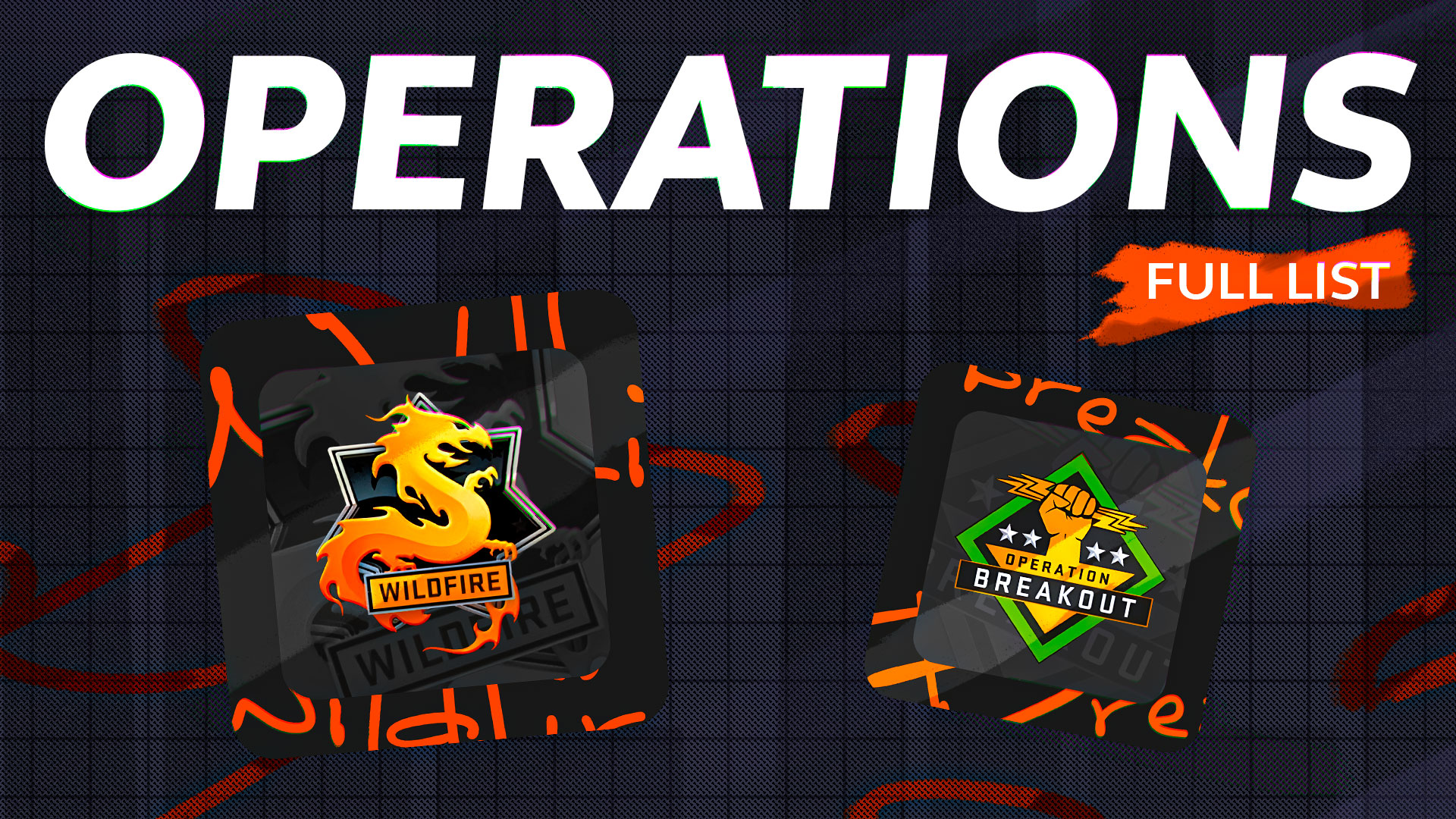Caribbean Business Insights
Exploring the vibrant business landscape of the Caribbean.
Cracking the Code: Why CS2 Operation Rewards Are More Than Just Loot
Unlock the secrets of CS2's Operation Rewards! Discover why they're not just loot, but a game-changer for players. Dive in now!
The Psychology Behind CS2 Operation Rewards: More Than Just a Game
The psychology behind CS2 Operation rewards is a fascinating exploration of how game design taps into human motivation. Players are not just participating in a game; they are engaging in a carefully crafted experience that exploits psychological principles. Rewards serve as powerful incentives, stimulating the brain's reward system and creating a sense of achievement. This is evident in the tiered structure of the Operation rewards, wherein players strive to complete missions to unlock increasingly desirable items. This gradual progression not only keeps players engaged but also reinforces a sense of accomplishment that translates into continued gameplay.
Moreover, the social aspects of CS2 further enhance the allure of these Operation rewards. By offering unique items that can be traded or showcased, players are motivated by both personal satisfaction and peer validation. This desire for social recognition can amplify the gaming experience, making the rewards feel more significant than they might otherwise seem. As a result, the psychology behind CS2 Operation rewards reflects a deeper understanding of human behavior and motivation, turning what could be a simple gaming mechanic into a complex interplay of desire, achievement, and social interaction.

Counter-Strike is a popular tactical first-person shooter game series that has captivated millions of players worldwide. In the game, players join either the terrorist or counter-terrorist team and compete in various objective-based scenarios. One of the most sought-after items in the game is the Ursus Knife, known for its unique design and gameplay advantages.
Unlocking Value: How CS2 Operation Rewards Enhance Your Gaming Experience
Unlocking Value: In the world of gaming, every玩家 aspires to enhance their overall experience, and the CS2 Operation rewards provide an excellent opportunity to do just that. Engaging in various operations not only allows players to sharpen their skills but also opens the door to a treasure trove of in-game rewards. These rewards, ranging from unique skins to rare collectibles, are designed to motivate players while adding an element of excitement to each match. With every completed mission, the satisfaction of unlocking new gear significantly elevates the gaming experience, making each victory feel more rewarding.
Moreover, the CS2 Operation rewards serve as a catalyst for community engagement. Players often find themselves collaborating with friends and other gamers to tackle challenges and reap the benefits of shared victories. Whether it's through participating in competitive matches or trading within the vibrant marketplace, these operations foster a sense of camaraderie and connectivity among players. As gaming continues to evolve, the integration of rewards within the CS2 framework exemplifies how developers can enhance player satisfaction and retention, ultimately leading to a more enriched gaming community.
Are CS2 Operation Rewards Worth the Hype? Exploring Player Perspectives
The recent introduction of CS2 Operation Rewards has sparked considerable debate among the gaming community. Many players are questioning whether these rewards are truly worth the hype. While some enthusiasts argue that the skins and items offered are a refreshing addition to the game, others feel that the grind required to earn these rewards may not justify the outcome. This dichotomy of opinion leads us to explore player perspectives more deeply to understand what factors influence their thoughts on the new operation rewards.
For many players, the allure of unique skins and the potential for rare drops motivates them to invest time and effort into operations. The exclusivity of these rewards is a significant draw; for instance, the chance to own a limited-edition item can inspire players to participate actively. However, some gamers argue that the grind can become monotonous and detracts from the overall enjoyment of gameplay. As such, the value placed on CS2 Operation Rewards often varies widely among players, influenced by personal preferences, gaming habits, and the perceived fairness of the reward system.